
Explore Peru, Argentina & Brazil Itinerary
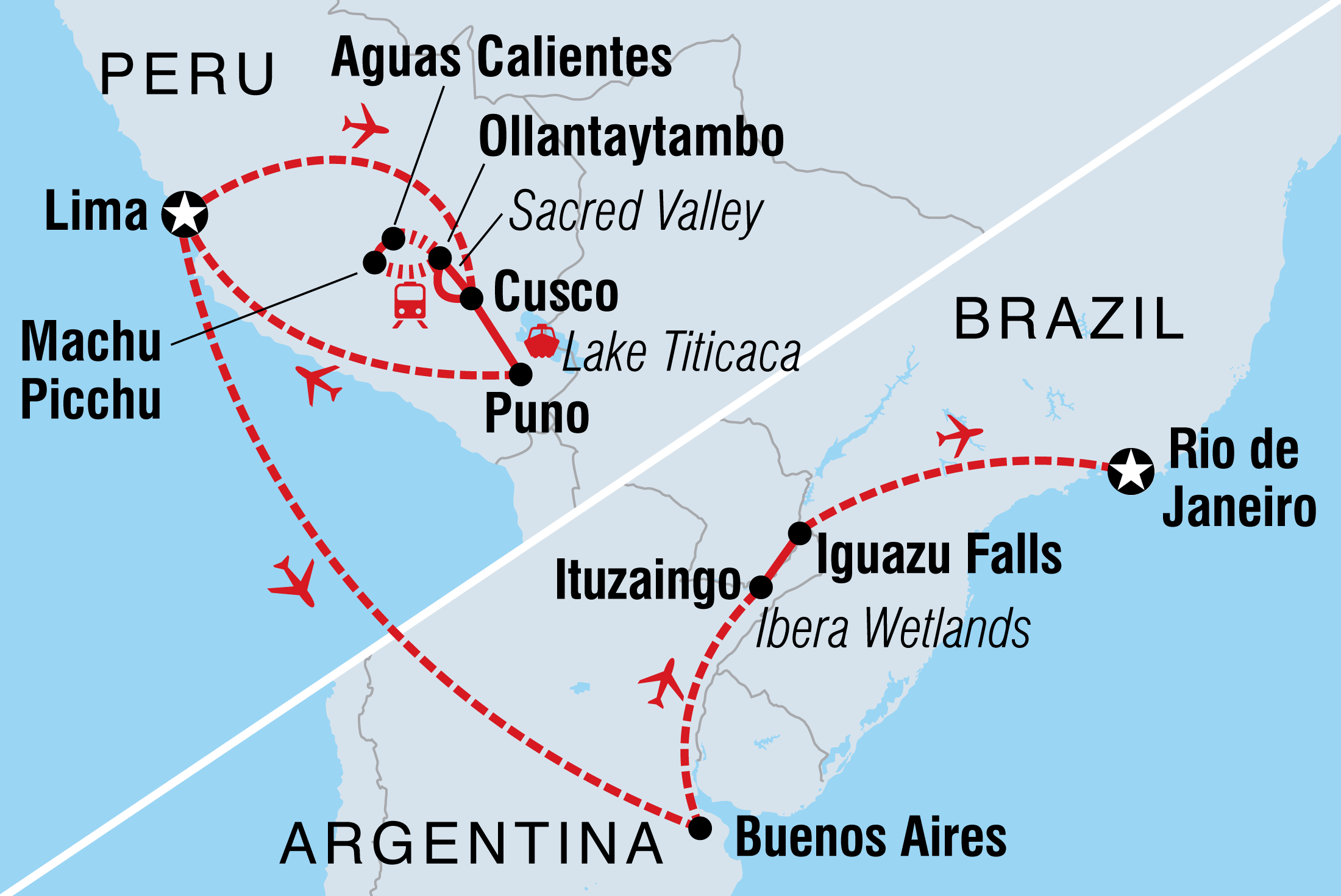


Bienvenidos! Welcome to Peru. Your adventure begins in the capital city of Lima with a welcome meeting at 2 pm. You’ll meet your fellow travellers and trip leader, then head out for a stroll of the streets of downtown to check out some of the main attractions on a walking tour. Enjoy some free time before an optional group dinner this evening. The unofficial food capital of South America, there’s no better place to sample Peru’s national dish (ceviche) than Lima. As there's little time spent in Lima on this trip, it’s recommended that you arrive a few days early to see the sights, like Miraflores, Central Park, Lovers' Park and the National Museum.
This morning after breakfast, you’ll catch an early flight to Cusco. Spend a little time acclimatising to the high altitude (3450 m), then get acquainted with the blend of cultures here on a leader-led walking tour. Check out some of Cusco's main attractions, as well as its lesser-known sights, such as the Qoricancha temple, San Pedro market, the main square, the 12 Angled Stone, Regocijo Square and San Blas Square. Tonight is free to explore at your own pace or find the perfect dinner spot with your group and try some local Peruvian favourites.
Travel by private bus through the Sacred Valley on the outskirts of Cusco today. This lush valley, known as Wilcamayo to the Incas, has long been the main source of food for the high Andes. Maize crops can be seen surrounding the river and covering the terraces that are carved high into the valley walls. You’ll visit a community in the valley to learn about local lifestyles and activities. If your visit coincides with market day, you can browse the stalls in search of hand-painted beads or warm ponchos. Visit the AMA Restaurant in Urubamba – this cafe provides employment opportunities and job training for single mothers throughout the Sacred Valley. Have a snack and learn how this inclusive enterprise focuses on economic growth, gender equality and the support of vulnerable communities. Board a train from Ollantaytambo to Aguas Calientes, in the cloud forest at the foot of Machu Picchu.
This morning, you’ll take an early bus up the winding road to Machu Picchu. Welcome to one of the famed Seven Wonders of the World! This is your chance to decide for yourself whether Machu Picchu was built around 1440 as a country retreat for the Incan nobility or as an ancient astronomical observatory. Enjoy a guided visit of the incredible site, giving you ample time to take in the many temples, palaces and living quarters. After taking advantage of the seemingly endless photo opportunities, one of the Seven Wonders of the World is checked off your bucket list! you’ll return to Cusco.
Today after breakfast, you can enjoy free time to relax, shop and explore Cusco's many sights. Maybe rest your weary legs at a cafe on Plaza de Armas or head to the San Pedro Market, where you can find vegetables, meats, local cheeses, chocolates, herbal medicines and many local handicrafts. It’s a great place to pick up souvenirs or ingredients for a picnic. The market is also where many locals (and daring travellers) go to eat ‘mystery soups.’ Some may be just chicken, however, the most popular among the locals usually contain frogs or offal. For those looking for something active, why not try mountain biking in the hills surrounding Cusco?
This morning after breakfast, you’ll travel through the dramatic scenery of the high Altiplano to Puno – located on the shores of serene Lake Titicaca. At an altitude of 3800 m, Lake Titicaca is the world's highest navigable lake. Today includes a bit of a long drive in a local bus, but it’s worth the first glimpse of immense Lake Titicaca, whose seemingly endless waters stretch into the horizon. Puno is a melting pot of Indigenous Aymara and Quechuan culture and traditional Andean customs, and it wears its traditions on its sleeve. If you're lucky, your trip will coincide with one of the many cultural festivals here. Ask your leader where you can get the best grilled trout tonight – a true local specialty perfect for dinner.
This morning, you’ll take a tour of the immense lake by motorboat, stopping at the floating Uros Islands that look like they could come from a Pixar or Studio Ghibli movie. Built by the Uros people to protect themselves from encroaching Inca forces hundreds of years ago, the islands are constructed from many layers of totora reeds that grow in the shallows of the lake. Get a closer look at contemporary life on the shores of the lake with a homestay in a local community. Help your host family with their daily activities, try out a few words in the Quechua language and maybe even join a local soccer game to make some friends on the makeshift pitch. Tonight, sit down and swap stories with your hosts, who will cook you a feast full of traditional Peruvian favourites.
This morning after breakfast at your homestay, say goodbye to the local family & your new Peruvian friends and take a bus to Juliaca airport. Then, you’ll take an included flight back to Lima, where you’ll have a free night. Enjoy your last night of the trip with your fellow travellers, time allowing explore the beautiful neighborhood of Miraflores including Kennedy Park, (a cat haven!) and “Parque del amor” (Love Park), entirely dedicated to all lovers. Enjoy the last night of the trip with your fellow travellers and maybe head out to a final celebratory dinner.
Say hasta luego (see you later) to Lima and board a flight to Argentina’s capital, Buenos Aires. Buenos Aires is a cosmopolitan city with Latin passion, European elegance and its own distinctive style. Your adventure continues with another welcome meeting at 6 pm. Your leader will leave a note at the hotel reception telling you where this important meeting will take place. If you arrive early, why not visit the San Telmo neighbourhood to wander cobblestone streets lined with old mansions, cafes and cool shops? Or maybe visit Recoleta (the grand cemetery) or Casa Rosada (the Pink House).
After breakfast, head out on an orientation walk of the city with your leader. You'll be introduced to some of Buenos Aires' major sights – the likes of the Colon Theatre (considered one of the most beautiful opera theatres in the world), the historic monument of Obelisc and Plaza de Mayo – home to the original town hall and the presidential palace known as the Pink House. The rest of the day is free to explore as you like – how about a beginner’s tango class or some people-watching with a glass of malbec? For dinner tonight, you could ask your leader where to find the best traditional asado (barbecue).
This morning, take a short flight to Posadas followed by a drive to Ituzaingo – a riverside city on the banks of the Parana River and your base to explore the Ibera Wetlands region. Spanning over 15,000 square kilometres, these wetlands are roughly the size of Belgium, which gives you an idea of how much there is to explore. The biodiversity is incredible, and the swamps, lakes and lagoons are home to many creatures including otters, alligators, deer, wolves and black howler monkeys to name a few. Also keep a look out for those oddly noble-looking creatures, the capybaras – cousins of the guinea pig and the largest rodents in the world.
Today you’ll do full day tour and safari of the wetlands with a local guide. You could see an array of mammals, reptiles and birds – maybe caiman or swamp deer, an armadillo, or a flock of rhea (which are like a South American equivalent of an emu). Anacondas, though particularly hard to spot at certain times of the year, are also known to inhabit these wetlands. Keep an eye to the sky, as you're bound to catch a glimpse of some of the 350 bird species here, from the sharp-tailed tyrant to the gorgeous yellow robin. For lunch, tuck into a delicious asado and maybe even have a go at kneading some dough for Argentinian bread. The evening is free to unwind or grab dinner with the group.
Have a hearty breakfast and prepare for a long travel day. Take a comfortable local bus to Puerto Iguazu. From here, you’ll transfer to a minivan and drive to a Guarani community. The Guarani are one of the region’s remaining Indigenous peoples, and you’ll have the opportunity to learn about their way of life and how they've preserved their traditions on the edge of one of South America’s most popular attractions. Later, cross the border into Brazil and continue to your hotel in Foz do Iguazu.
Today you'll visit the mighty Iguazu Falls from both the Brazilian and Argentinian sides. At over two km long, the falls are actually a series of cataracts (large waterfalls). There are over 270 in total, with some reaching up to 80 m tall, and they're wider than Victoria Falls and higher than Niagara. Enjoy the panoramas on the Brazilian side – including a view of San Martin Island which you don't quite get from the Argentinean side. You might like to take a helicopter ride over while you're here. This optional activity gives you spectacular views of the cascades and the lush parklands that surround it.
Today you'll go to the Argentinean side of the falls where it’s possible to follow a series of boardwalks and get up close to the thundering waters – so close you can almost touch them. For a more exhilarating experience, you could also jump on a Zodiac tour that takes you around the base the cascades. Return to your hotel later in the afternoon to relax and prepare for tomorrow’s journey to Rio de Janeiro.
Today you'll take a flight to Rio de Janeiro, the festive heart of Brazil. When you arrive, settle into your hotel and then join your leader for an orientation walk. Rio is a diverse city best known for its beaches, Carnaval and contrasting images of favelas (informal settlements) and luxury districts. After, enjoy some free time to explore your way – your leader can provide recommendations. Perhaps head to a football game, take a cable car ride between Praia Vermelha and the Sugarloaf Mountain for views over the city or enjoy a caipirinha at a beachside bar.
This morning you'll be picked up at your hotel and head straight to Christ the Redeemer to try and beat the crowds. Soak up the early morning air and take some photos of this iconic statue before heading to a local farmers’ market. Your leader will show you some of the favourite local foods to try and introduce you to market traditions. The rest of the afternoon is free to relax or explore more of the city. As it’s your last night together as a group, you could head out for a farewell dinner and say saude (cheers) to your adventure.
With no activities planned, you’re free to leave your hotel after breakfast. If you'd like to extend your time in Rio, just let us know and we’ll be happy to organise additional accommodation (subject to availability).

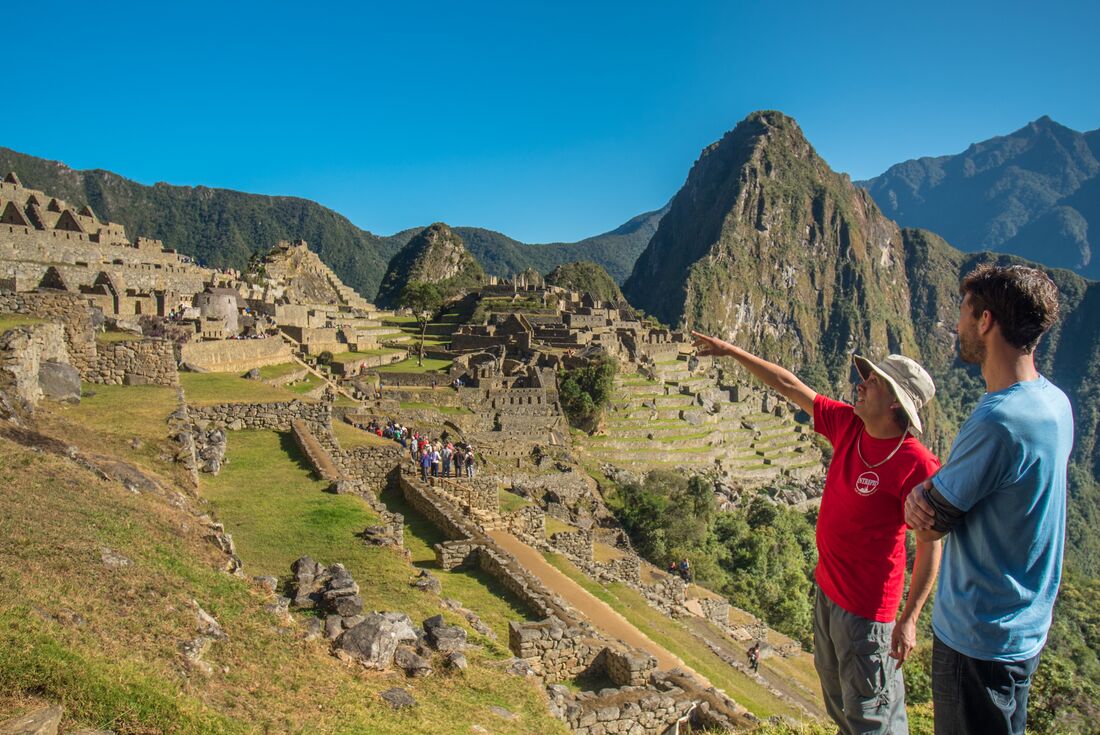
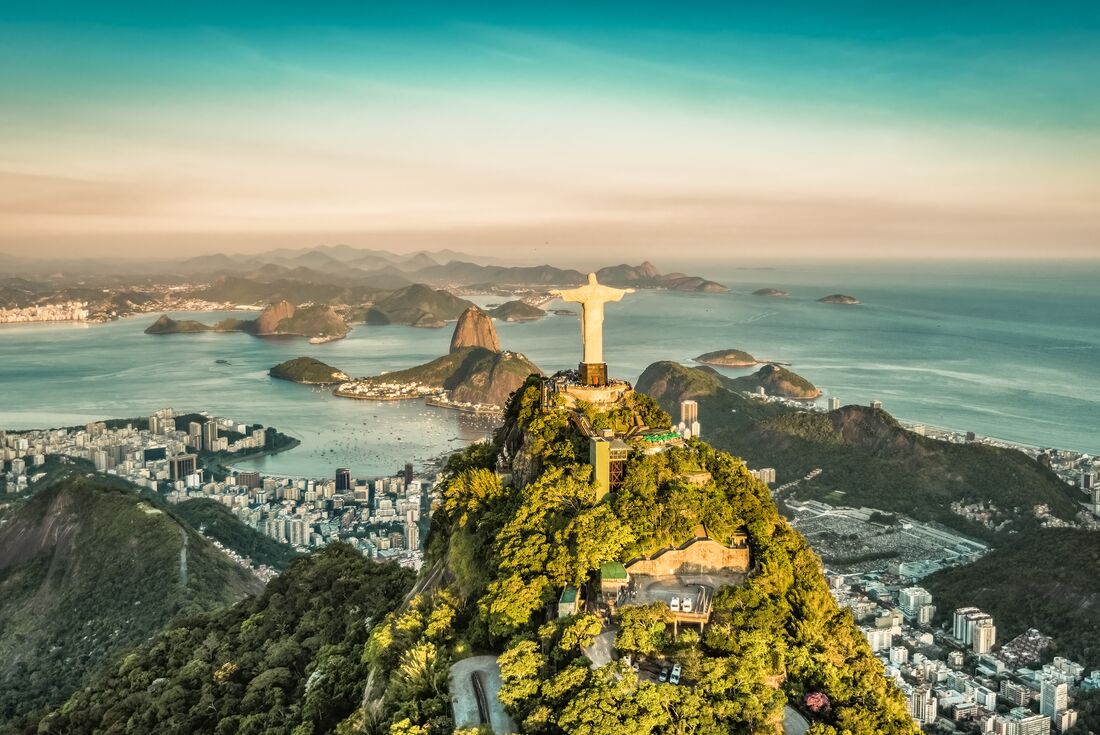
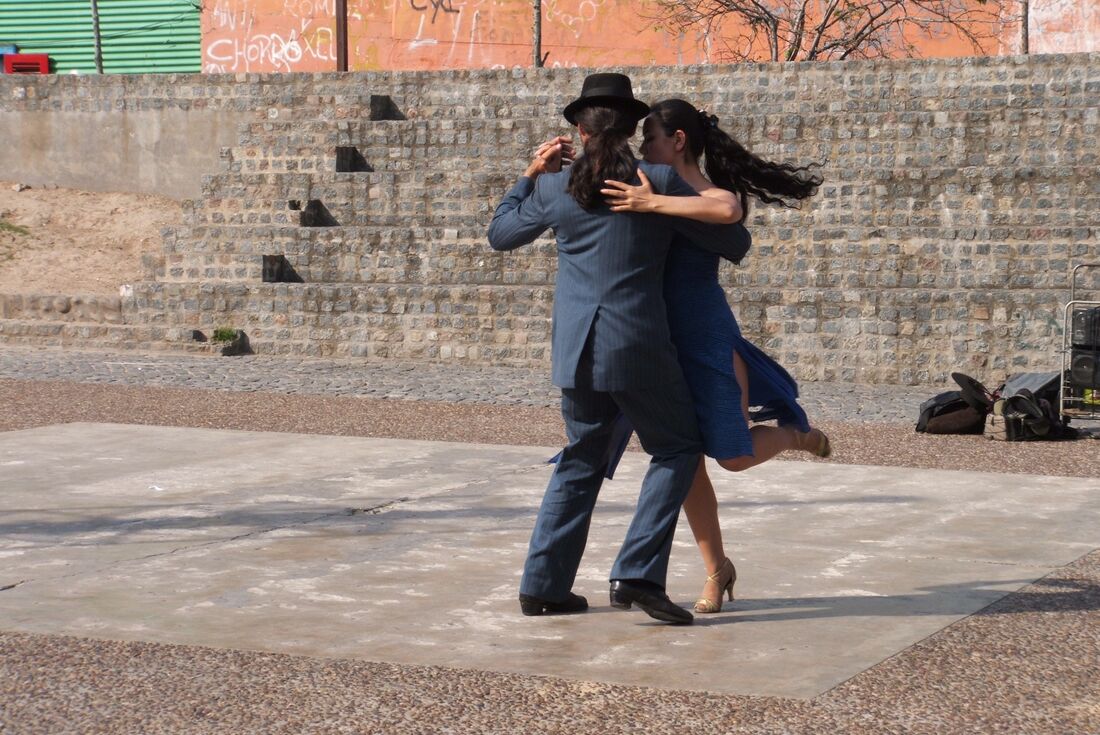
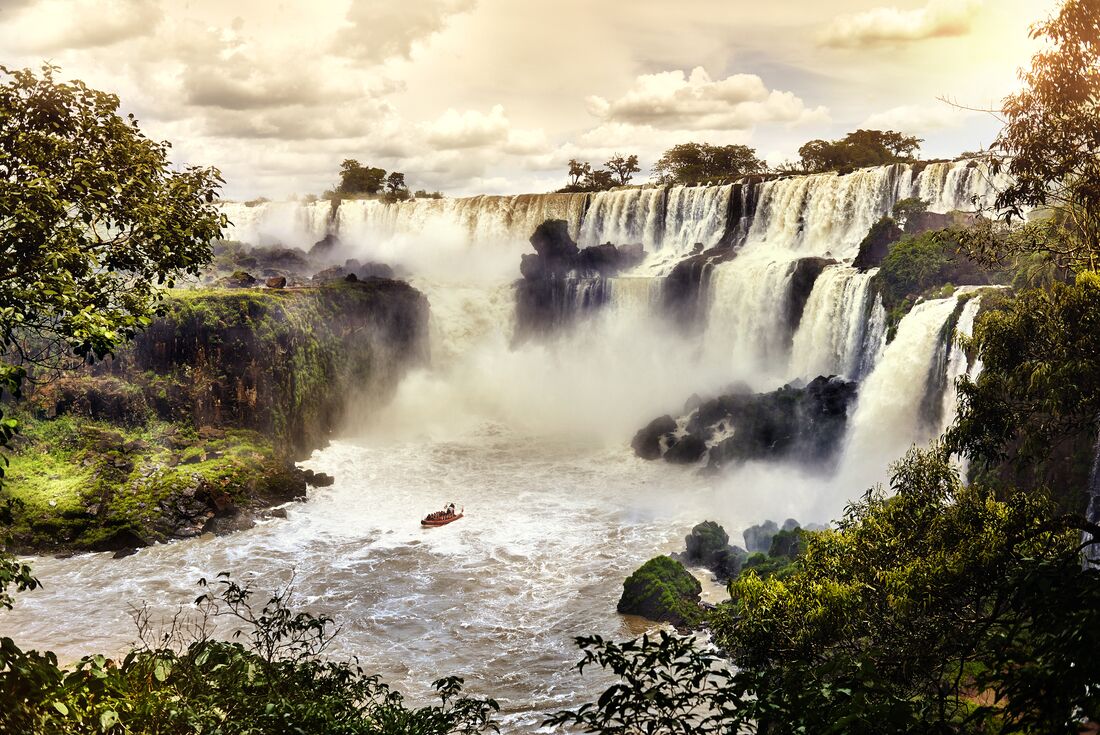
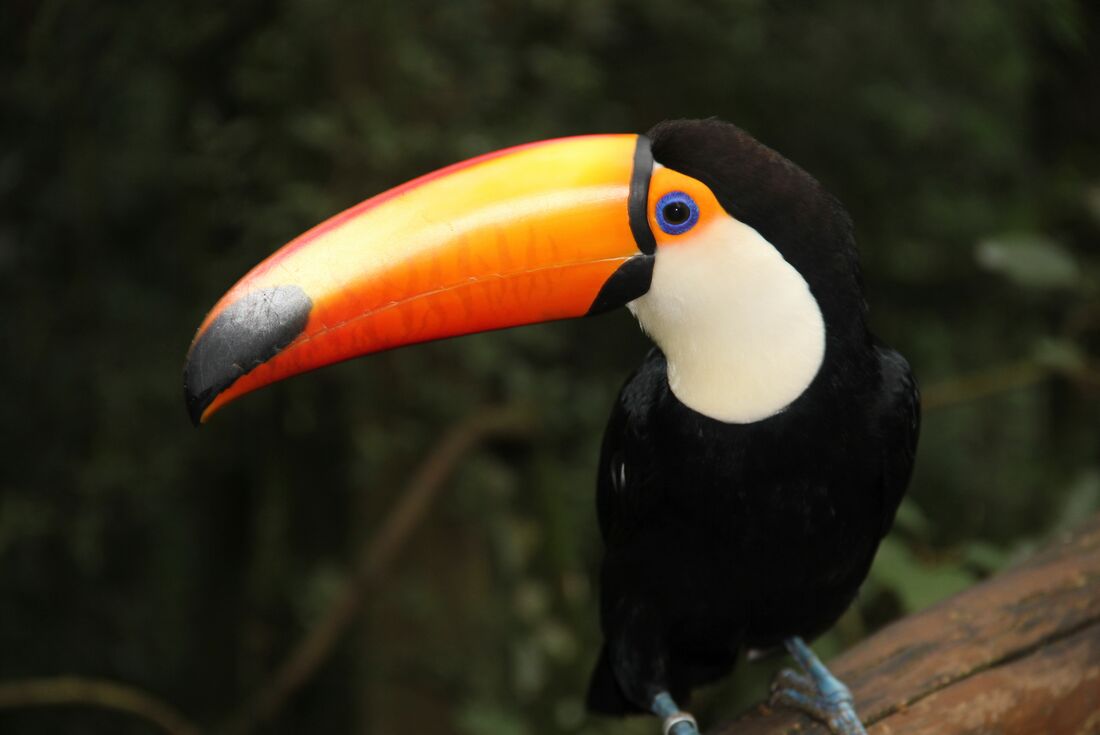
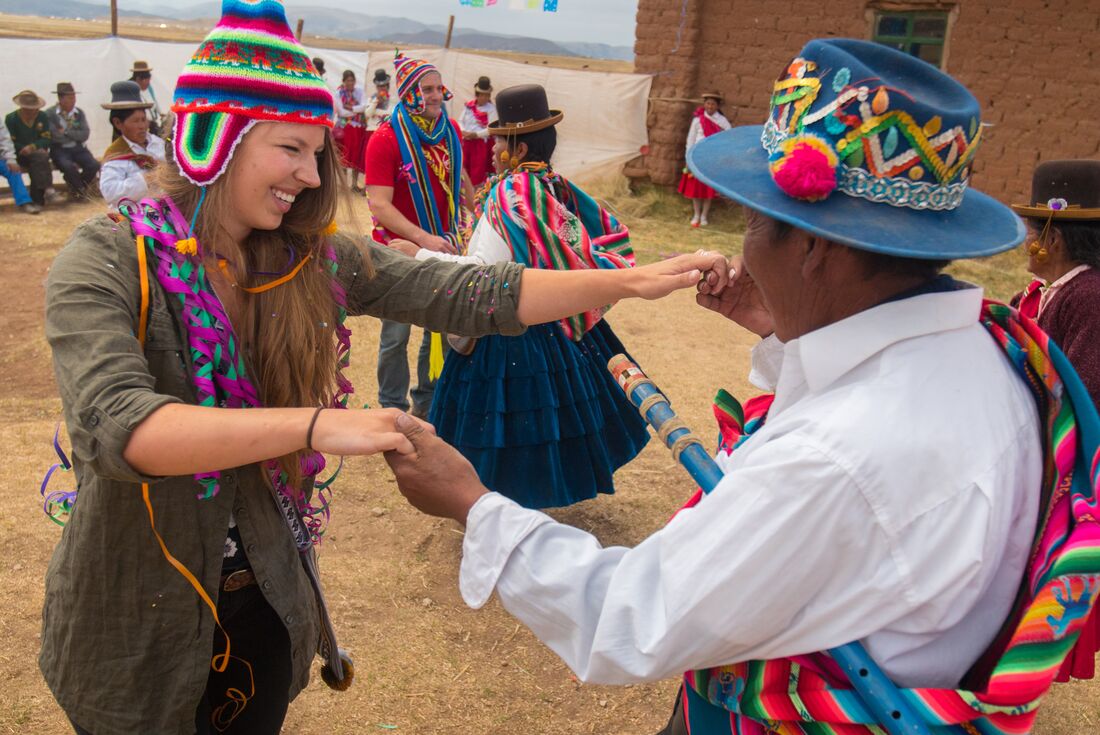
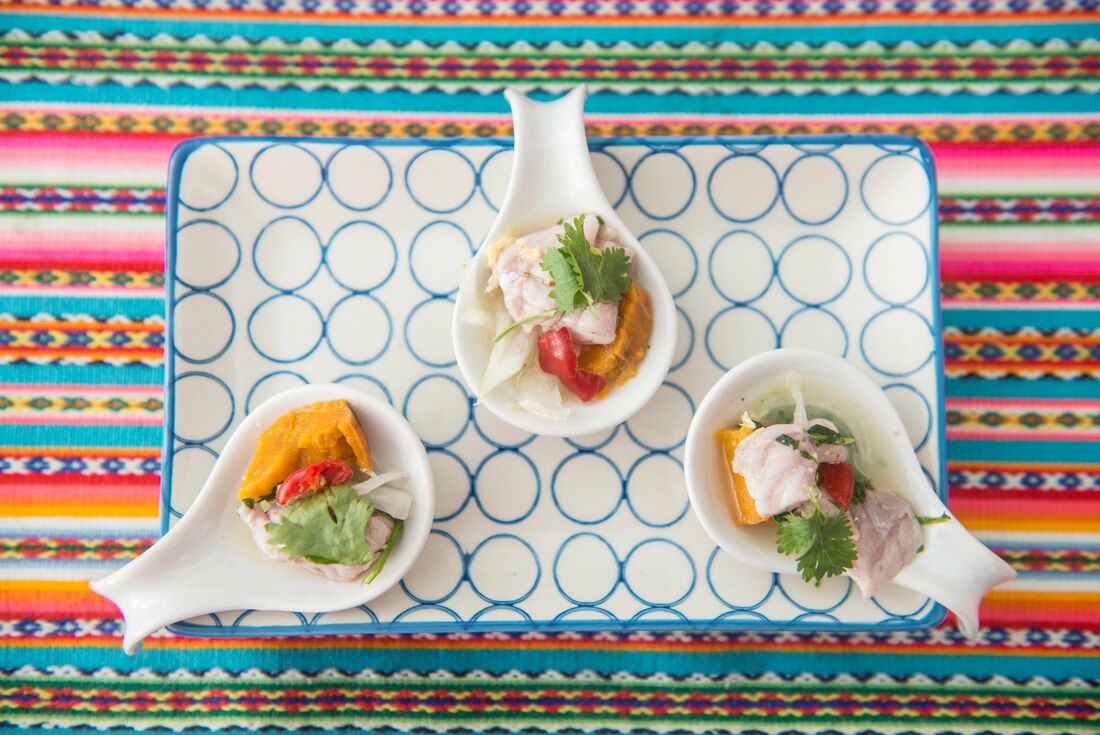
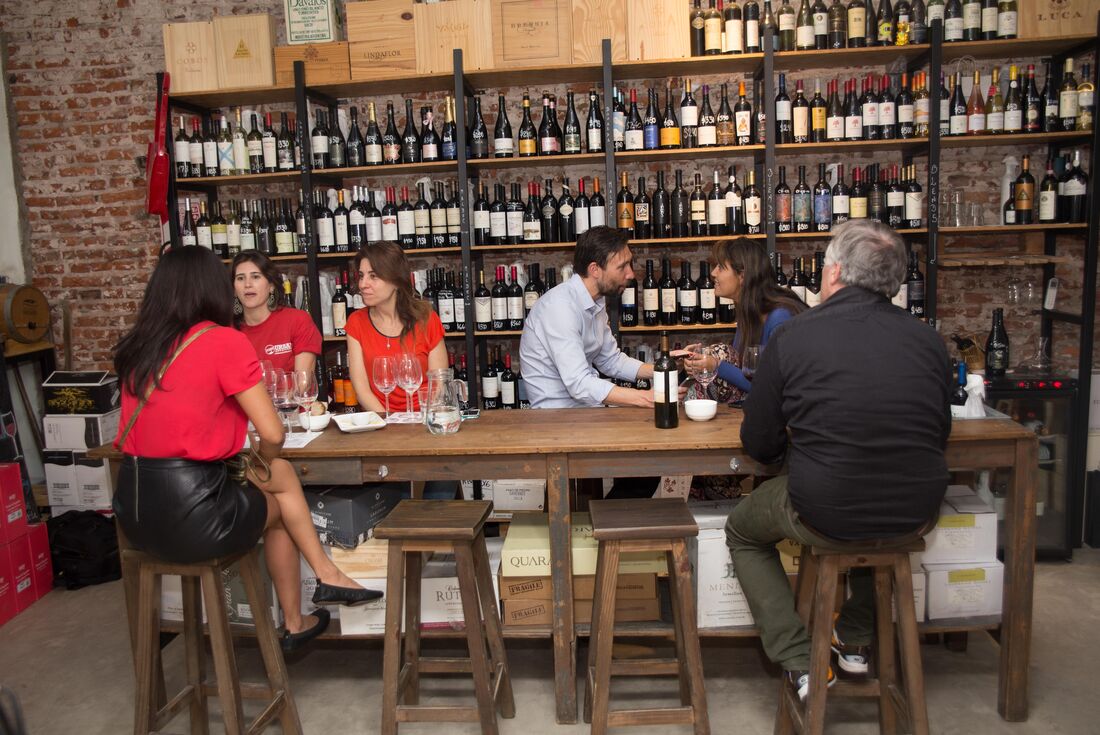
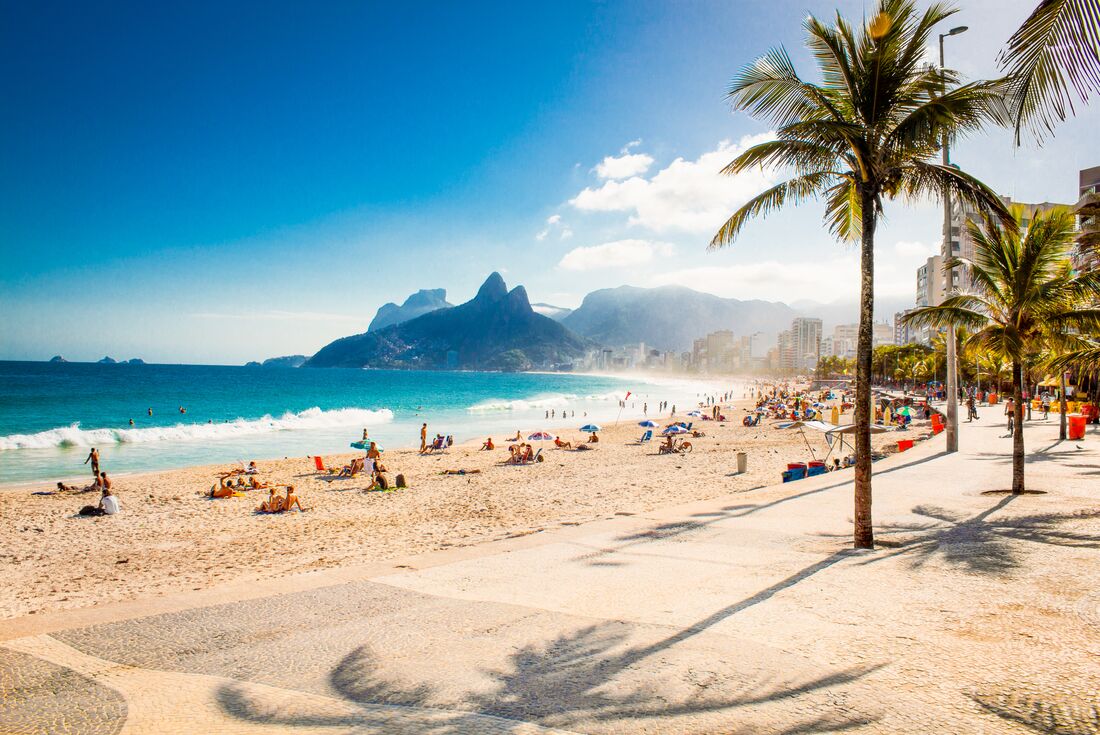
Lima - Leader-led walking tour
Cusco - Leader-led orientation walk
Sacred Valley - Community visit & lunch
Sacred Valley - Snack & drink at AMA Restaurant social enterprise
Machu Picchu - Entrance and guided tour
Lake Titicaca - Boat tour & Homestay
Buenos Aires - Leader-led orientation walk
Ibera Wetlands - Day tour
Iguazu Falls - Guarani community visit
Iguazu Falls - Tour of the Brazilian side of the falls
Iguazu Falls - Tour of the Argentinian side of the falls
Rio de Janeiro - Corcovado, Christ the Redeemer & Farmer's Market Urban Adventure
Witness two New Seven Wonders of the World – take a guided tour of the mother of all Inca ruins at Machu Picchu in the Peruvian Andes, then see the immense Christ the Redeemer overlooking Rio.
Meet the Uros people who live on floating islands made of reeds on Lake Titicaca, then stay with a Llachon family in a traditional mudbrick house on the lake’s shores.
Discover major cities like eclectic Buenos Aires, food-filled Lima and beachy Rio with a local leader to show you around and share tips to make the most of your free time.
Explore the lush landscapes of the Ibera Wetlands in search of anacondas, otters, howler monkeys, turtles, capybaras, wildcats and over 350 species of colourful birds.
See the mighty Iguazu Falls from both the Argentinian and Brazilian sides and maybe get even closer to these epic cascades on a Zodiac boat ride.
Hotel El Señorial, Calle Jose Gonzales 567 - Miraflores , MIraflores, Lima, PERU, Phone: 511 4451870
Americas Benidorm Hotel (Benidorm Palace Hotel), Rua Barata Ribeiro, 547 , Copacabana, Rio de Janeiro, BRAZIL, Phone: +55 2125488880
1. Full passport details are required at the time of booking. The passport you travel with must match the booking details provided to us. This information is necessary to purchase entry permits to certain sites and flight tickets. Delays in providing this information could result in additional booking fees or changes to your itinerary.
2. A single supplement is available if you’d prefer not to share a room on this trip. The single supplement excludes Day 7 (Homestay) where you will be in shared accommodation and is subject to availability. Please speak to your booking agent for further information.
3. This trip starts in Lima on Day 1 at 2pm. This allows time after the welcome meeting to explore Lima.
4. Please ensure you have a day pack or small overnight bag in addition to your main luggage. This will be needed for the Homestay at Lake Titicaca and the night in Aguas Calientes, as you will be leaving your main luggage at the hotels in Puno and Cusco.
5. This trip includes a domestic flight. Argentina is particularly strict on excess baggage and usually enforces a maximum allowance of 15kg for check in luggage.
6. We recommend taking USD cash with you to Argentina and exchanging it to Argentinian pesos locally. While ATMs are widely available, there is a daily limit for withdrawals and the exchange rate fluctuates.
7. This trip includes a domestic flight within Argentina. The luggage allowance is 15kg for check in luggage. Should you wish to bring heavier luggage it is possible to increase your allowance by paying a fee at check in.
8. According to Machu Picchu visiting regulations all visitors must follow a pre-determined circuit within the site as a way to relieve crowding. The circuit-based entrance tickets are available on a first come first serve basis. For travellers who opted for the Quarry Trail and Train options we will endeavour to get everyone traveling in a group on the same circuit. Regardless of the circuit you will enjoy the beauty and grandeur of the site. Travellers completing the Inca Trail will enter Machu Picchu via the Sun Gate.
While we always endeavour to provide the best possible holiday experience, due to the nature of travel and the areas we visit sometimes things can and do go wrong. Should any issue occur while you are on your trip, it is imperative that you discuss this with your group leader or local representative straight away so that they can do their best to rectify the problem and save any potential negative impact on the rest of your trip.
We recognise that there may be times when your group leader or local representative may not be able to resolve a situation to your satisfaction - if this is the case, please ask the group leader or local representative to speak to their direct manager.
You may also choose to provide details in your online feedback, which we ask you to complete within 30 days of the end of your trip. Please do be aware that it is very difficult for us to provide any practical help after the trip is completed, so informing us while still travelling will give us the opportunity to resolve the issue in real-time., For general contact details please use the following page: https://www.intrepidtravel.com/contact-us, In case of a genuine crisis or emergency, you can reach our local office on the numbers below:
, Available for phone call or WhatsApp call on +51 996 055559 Lima, +51 940 512701 Cusco
This trip visits places that are at high altitude, and as a result some people can suffer from altitude sickness, regardless of age or physical health. Please see the Medical and health information section of the Essential Trip Information for more detail., There are several orientation walks and city tours during this trip, so there will be quite a lot of walking. It’s important to always bring plenty of water, wear comfortable walking shoes and ensure you use adequate sun protection. Wearing layers is a good way to tackle the heat., The facilities are basic at your homestay on Lake Titicaca. While creature comforts are few and far between while you're there, many travellers find the experience a rewarding one., According to Machu Picchu visiting regulations all visitors to Machu Picchu must follow a pre-determined circuit within the site as a way to relieve crowding. The circuit-based entrance tickets are available on a first come first serve basis. We will do all that is possible to get everyone traveling in a group on the same route, but be aware that it is possible that members of the same group might be visiting Machu Picchu on a different circuit and not be together during this visit. Once the guided visit concludes, visitors must exit the site and personal exploration of Machu Picchu is not permitted.
Witness two New Seven Wonders of the World – take a guided tour of the mother of all Inca ruins at Machu Picchu in the Peruvian Andes, then see the immense Christ the Redeemer overlooking Rio., Meet the Uros people who live on floating islands made of reeds on Lake Titicaca, then stay with a Llachon family in a traditional mudbrick house on the lake’s shores., Discover major cities like eclectic Buenos Aires, food-filled Lima and beachy Rio with a local leader to show you around and share tips to make the most of your free time., Explore the lush landscapes of the Ibera Wetlands in search of anacondas, otters, howler monkeys, turtles, capybaras, wildcats and over 350 species of colourful birds., See the mighty Iguazu Falls from both the Argentinian and Brazilian sides and maybe get even closer to these epic cascades on a Zodiac boat ride.
All group trips are accompanied by one of our group leader or local representative. The aim of the group leader or local representative is to take the hassle out of your travels and to help you have the best trip possible. Intrepid endeavours to provide the services of an experienced group leader or local representative however, due to the seasonality of travel, rare situations may arise where your group leader or local representative is new to a particular region or training other group leader or local representative.
Your group leader or local representative will provide information on the places you are travelling through, offer suggestions for things to do and see, recommend great local eating venues and introduce you to our local friends. While not being guides in the traditional sense, you can expect them to have a broad general knowledge of the places visited on the trip, including historical, cultural, religious, and social aspects. At Intrepid we aim to support local guides who have specialised knowledge of the regions we visit. If you are interested in delving deeper into the local culture at a specific site or location then your group leader or local representative can recommend a local guide service in most of the main destinations of your trip.
TRAVEL ADVISORIES & ALERTS
We recommend that you check your government's foreign travel advisory for the latest information about the destination before you travel. You will also need to ensure that your travel insurance covers you for all destinations and activities on your trip. We also recommend saving the phone number for emergency consular assistance for your government’s consulate in the destination/s you’ll be travelling. Links to travel advisories and any current travel alerts for our trips can be found here: https://www.intrepidtravel.com/travel-alerts
PERSONAL SAFETY
Ensure you have a secure method of carrying your passport, phone, credit cards and cash while travelling such as a money belt. Leave all other high value items, including jewellery, at home Use safety deposit boxes at hotels to store your valuables when available and ensure your luggage is lockable. Be aware of the risk of pick-pocketing and petty theft. Exercise caution when walking at night, don’t walk alone and stick to well-lit streets wherever possible. Be vigilant on public transport and look out for your fellow travellers. Take precautions such as carrying your bag in front of you and never leaving personal items unattended.
LGBTQIA+ TRAVELLERS
Intrepid welcomes all LGBTQIA+ customers on our trips, however we operate in parts of the world that are less accepting. We support LGBTQIA+ customers to travel to these destinations and are committed to ensuring they face no discrimination on any part of the trip we control. We recommend you visit Equaldex (https://www.equaldex.com/) and your government's foreign travel advice for LGBTQIA+ travellers when choosing your trip., https://www.intrepidtravel.com/safety-guidelines, LIMA AIRPORT TRANSFERS
For safety reasons, we strongly recommend that during airport transfers in Lima all of your luggage, including hand luggage and valuables, is stored out of sight in the rear boot of the vehicle., TRAFFIC AND DRIVING ON THE OTHER SIDE OF THE ROAD:
Depending on where you come from please note that drivers in this part of the world may drive on the opposite side of the road from what you are used to. Look both ways before crossing any road. Traffic can be a little more chaotic than you might be used to at home. Be aware!, PETTY THEFT AND PERSONAL SAFETY
While travelling there is always the risk of pick-pocketing and petty theft, particularly in the more touristy cities. We recommend that you exercise caution when walking alone at night and encourage you to walk together and only on main, well-lit thoroughfares. Be particularly vigilant on public transport. Simple measures like carrying your day pack on your front, not hanging your bag over the back of your chair or on the floor and wearing a money belt will reduce any chance that your valuables should go missing., SEAT BELTS:
Please be aware that local laws governing transportation safety may differ from those in your home country and not all the transport which we use is able to provide seat belts., MONEY WITHDRAWAL:
In order to avoid fraud and theft, it is advisable that you withdraw money from ATMs located inside banks or guarded shops during business hours only.
PASSPORT
You’ll need a valid passport to travel internationally and most countries require your passport to have a minimum of 6 months validity, so remember to check the expiry date.
We need your passport information to get everything ready for your trip so it’s important that the information on your booking matches your passport exactly. Please take care to provide the correct details. We recommend carrying a copy of the photo page of your passport while travelling and leaving a copy at home with family or friends.
VISAS & ENTRY REQUIREMENTS
Many countries require a visa and obtaining the correct visa for your trip and any countries you may transit through is your responsibility. We recommend you check your visa requirements as soon as you have booked your trip. This will ensure you have time to prepare your documents and for your visa application to be processed. You can check the entry requirements for your nationality on your government's foreign travel advisories, consular websites or on our page here: www.intrepidtravel.com/visa-entry-requirements, BORDER CROSSING INFORMATION
BRAZIL ENTRY POINT:
Please note for visa applications, groups travelling on this itinerary will enter Brazil via the land border crossing at Puerto Iguazu-Foz do Iguacu on Day 13. Travellers return to Argentina to visit Iguazu Falls during Day 14 but spend the night back in Brazil at our hotel in Foz do Iguacu., It is a requirement of the Peruvian Tax Authority for our trip leaders to show proof that all travellers on our groups are foreign tourists and are thus exempt from the 18% Value Added Tax (VAT) charged to locals. This may require your trip leader to take a photograph of your main passport page and the page showing the immigration stamp you receive upon entry to Peru.
Information not available.
Validity: 01 Jan 2026 to 31 Dec 2026
GENERAL HEALTH
All travellers need to be in good physical health in order to participate fully on this trip. For the safety and wellbeing of yourself and others, if you are unwell prior to travelling, please stay at home and contact us to make alternative arrangements.
When selecting your trip please make sure you have read through the itinerary carefully and assess your ability to manage and enjoy our style of travel. Please note that if in the assessment of our group leader or local representative a traveller is unable to complete the itinerary without undue risk to themselves and/or the rest of the group, we reserve the right to exclude them from all or part of a trip without refund.
You should consult your doctor for up-to-date medical travel information or for any necessary vaccinations before departure. We recommend that you carry a first aid kit as well as any personal medical requirements in their original packaging as they may not easily be obtained while travelling. If you are carrying medication, ensure you check your government's foreign travel advice for any local restrictions or requirements.
, MOSQUITO-BORNE ILLNESSES:
Some regions of Central & South America can experience outbreaks of dengue fever. There is no vaccination against it, but there are preventative measures that you can take such as wearing long clothing, using repellent, and being indoors particularly around dusk and dawn. If you have a fever or feel unwell, please let your group leader or local representative know right away. Protect yourself against mosquito-borne illnesses such as malaria by taking measures to avoid insect bites., ZIKA VIRUS:
There have been reports of transmission of the mosquito-borne Zika virus in this region and we advise all travellers to protect themselves from mosquito bites. Given possible transmission of the disease to unborn babies, and taking a very cautious approach, we recommend all women who are pregnant or trying to get pregnant to consult with their doctors before booking their trip., ALTITUDE SICKNESS
This trip travels to altitudes where there is a risk of Acute Mountain Sickness (AMS), a potentially life-threatening condition if left untreated. AMS can affect anyone, regardless of age, fitness or experience. There is a higher risk of AMS for those who have had it before, those who drink alcohol and those who take part in strenuous exercise before correctly acclimatising.
As some medical conditions or medications may increase your susceptibility, we strongly advise discussing any pre-existing conditions, your participation in this trip, and preventative medications such as Diamox with your doctor.
Our itineraries are carefully designed and risk-assessed in line with our Altitude Safety Policy and current best practice standards for safe acclimatisation. However, AMS can still occur, and it’s essential to be aware of the signs and symptoms. These include nausea, dizziness, shortness of breath and headaches.
Our experienced leaders are trained in AMS awareness and first aid and will conduct regular checks to help you monitor your health throughout the trip. They have full authority to make decisions regarding your participation based on medical needs or AMS symptoms, including delaying or stopping your ascent if necessary.
More information about Altitude Sickness can be found here: https://www.intrepidtravel.com/au/altitude-sickness
, YELLOW FEVER
A valid international certificate of vaccination against Yellow Fever is required in many countries. You may need to present this on arrival at the airport or border crossing. Some countries will refuse entry if you are unable to present your certificate. It's also quite common for your home country to request a Yellow Fever certificate on your arrival back home. It is your responsibility to check with your doctor well in advance of leaving home about the Yellow Fever requirements for the countries you'll be visiting.
While travelling with us you'll experience the vast array of wonderful food available in this region. Your group leader or local representative will be able to suggest restaurants to try during your trip. To give you the maximum flexibility in deciding where, what and with whom to eat, generally not all meals are included in the trip price. This also gives you more budgeting flexibility. As a rule, our groups tend to eat dinner together to enable you to taste a larger variety of dishes and enjoy each other's company. There's no obligation to do this though.
DIETARY REQUIREMENTS
Please let us know your diet requirements before your trip starts.
Generally speaking, in bigger cities/towns vegetarians can expect a reasonable range of vegetarian venues and/or vegetarian options within tourist restaurant menus. However, vegetarianism is not the norm in this part of the world so options can be limited when eating at homestays, small local restaurants, street stalls, markets, etc.
More restrictive diet requirements (vegans, coeliac, gluten intolerance, fructose intolerance, lactose intolerance, etc.) can also be accommodated along this trip but you should expect a lesser variety than what you can expect at home. We recommend that, if possible, to bring your own supply of snacks with you.
For those on strict Kosher or Halal diets, we understand your dietary requirements are important, however, sometimes due to cultural and language differences these are not always easy to convey when you are travelling. Your guide will do their best to assist you in translating your needs when eating out, but please be aware that these diets are almost unheard of in much of the continent and the best they may be able to accommodate is no pork and shellfish. If this will be a concern for you you may need to consider opting for vegetarian or vegan meals for the included meals in your itinerary. We recommend researching kosher or halal options in your destination country prior to travel to see if you are able to buy snacks once there, otherwise consider bringing some from home.
SPENDING MONEY
When it comes to spending money on the trip, every traveller is a little different. You know your spending habits better than we do, so please budget an appropriate amount for things like optional meals, drinks, shopping, optional activities, and laundry. Make sure you have read the itinerary and inclusions thoroughly so you know what is included in the trip price and what you may need to pay for while travelling. , CREDIT CARDS, ATMS AND EXCHANGING MONEY
ATMs are widely available in major towns and cities across South America. Credit cards are generally accepted in tourist shops and some restaurants across South America. Visa and Mastercard are preferred. Smaller shops and restaurants only accept cash.
USD cash is the easiest to exchange. We recommend bringing large bills in good condition, 2013 series onwards only. Any old or damaged notes may not be accepted., ARGENTINA
We strongly recommend you take USD cash with you to Argentina and change it locally to Argentinian Pesos (ARS). While ATMs are widely available, there is a daily limit for withdrawals and the exchange rate fluctuates.
, BRAZIL
Credit cards are widely accepted, but banking facilities, such as ATMs, may be unreliable. Withdrawing money can be difficult and you may need to try several to find one that works for your cards. We recommend discussing your travel plans with your bank, prior to leaving home.
Credit card fraud and ATM tampering are widespread. To combat this, many ATMs cap withdrawals at BRL 400 per day. If you withdraw cash at an ATM and the money has pink marks on it, speak to the bank (or police) straight away to get it changed as it may have been marked as damaged or counterfeit., TIPPING
Tipping can be an appropriate way to recognise great service when travelling. While it may not be customary in your home country, it is an entrenched feature of the tourism industry across many of our destinations and is greatly appreciated by the people who take care of you during your travels. It is always best to avoid tipping with coins, very small denomination notes, or dirty and ripped notes, as this can be regarded as an insult rather than the goodwill gesture it is intended to be., OPTIONAL TIPPING KITTY
On Day 1 of your trip, your group leader or local representative may discuss with you the idea of operating a group tipping kitty, whereby everybody contributes an equal amount and your group leader or local representative distributes tips for drivers, local guides, hotel staff and other services included on your trip. Participation in this kitty is your choice, and you are welcome to manage your own tipping separately if you prefer.
The group leader or local representative will keep a running record of all monies spent, which can be checked at any time. Any funds remaining at the end of the trip will be returned to group members. These tips to suppliers are for great service and are in addition to the regular costs paid for the services supplied.
The tipping kitty excludes tips for your group leader or local representative., Optional tipping kitty from Lima to Lima: PEN 110 per person.
Optional tipping kitty from Buenos Aires to Rio de Janeiro: USD 35 per person., YOUR GROUP LEADER OR LOCAL REPRESENTATIVE
Tipping your group leader or local representative is highly appreciated if you feel they’ve provided outstanding services throughout your trip. The amount is entirely a personal preference; however, as a guideline, the recommended amount is 4-7 USD or EUR per traveller per day (in a currency relevant to your destination). Of course, you are free to tip more or less as you see fit, depending on your perception of service quality and the length and involvement of your group leader or local representative on your trip., CONTINGENCY FUNDS
We try to plan for every eventuality, but there are still some things beyond our control. We reserve the right to change an itinerary after departure due to local circumstances or a Force Majeure Event. In such emergency circumstances, the additional cost of any necessary itinerary alterations will be covered by you. Please note we are not responsible for any incidental expenses that may be incurred as a result of the change of itineraries including but not limited to visas, vaccinations or non-refundable flights. Make sure you have access to an extra US$500 for emergencies (e.g. severe weather, natural disasters, civil unrest) or other events that result in unavoidable changes to the itinerary (e.g. transport strikes or cancellations, airport closures). Sometimes these things necessitate last-minute changes to enable our trips to continue to run, and as a result, there may be some extra costs involved. The recommended amount is listed in USD for the relatability of universal travellers, however, local currency may be needed once in the country to cover these costs.
Most travellers prefer to take a small to medium wheeled suitcase or a medium to large backpack, which is a great size for the packing capacity in our vehicles. Whatever you take, be mindful that you will need to be able to carry your own luggage, handle it at airports, take in/out of accommodation and perhaps even walk short distances. Generally speaking, we recommend you pack as lightly as possible. You'll also need a day pack/bag for activities and day trips.
INTERNAL FLIGHT LUGGAGE ALLOWANCE:
Checked luggage allowance is a maximum 20kg, with 1 piece of hand luggage. Any excess luggage charges can be paid directly to the airline at check-in. Domestic flights within Argentina allowance is 15kg for check in luggage, should you wish to bring heavier luggage it is possible to increase your allowance by paying a fee at check in.
Other than the items and clothing you always need on a trip, below we have listed packing suggestions specific for this trip:
ESSENTIAL:
- Closed-in shoes will help to protect your feet from cuts and scratches when walking through cities as well as bush/grass-lands, and will also act as a barrier protection in rare cases against bites or stings
- Sun protection - hat, sunscreen, sunglasses.
- Day Pack - A day bag that has easy access to water bottles (external side pockets) or a day pack with a built in hydration bladder. This bag only needs to be large enough to hold the few things you need during the day (hat, water, camera, snacks, rain jacket etc)
- Waterproof, well worn-in walking boots - Good quality, comfortable footwear is essential. Whatever you wear on your feet the most important thing is comfort. It is vital to ensure your boots are well worn in and lightweight. Ankle support and waterproofing is recommended but if you already have something comfortable with good grip on rocks then don’t go rushing out to buy new boots – you are better off with your well-worn in pair!
- Walking clothing - Its best to bring clothes that can be layered so you can adjust layers according to the weather which is ever-changing in the Falklands. Please ensure this includes a waterproof jacket and pants.
-Basic personal toiletries
RECOMMENDED:
- Soft and/or hard copies of all important documents e.g. air tickets, passport, vaccination certificate, etc. and keep the hard copies separate from the originals. While not valid, a copy makes it very much easier to obtain replacements if necessary
- Water bottle. We recommend at least a 1.5 litre capacity. The sale of bottled water contributes to an enormous environmental problem around the world. In addition to the water in bottles, the production of a 1 litre plastic bottle takes 2 litres of water and 200ml of oil. A large proportion end up in limited landfill or discarded in waterways and natural environments
-Electrical adapter plug.
- Personal medical kit. Your guide will carry a large kit but we recommend you carry items such as mild pain killers, electrolytes and bandaids.
- Watch/Alarm clock or phone that can be used for both
OPTIONAL:
- Ear plugs to guard against a potential snoring room-mate
VALUABLES:
Please try to avoid bringing unnecessary valuables, and use your hotel safe. It’s also a good idea to purchase a money belt or pouch that is easily hidden.
LAUNDRY
Laundry is available at many hotels and towns during this trip, although you might need to wait for a two-night stop in order to make sure you get it back in time. While laundry at hotels is usually charged by the item, laundromats usually charge by the kilo or per load, which is generally inexpensive (2 USD per Kg).
Information not available.
Intrepid won't tolerate any kind of violence, harassment (whether physical, verbal or sexual), or disrespect toward fellow travellers, our teams or local communities.
To ensure the wellbeing of everyone on the trip, decisions made by your group leader are final.
Romantic relationships between travellers and group leader or local representative are not permitted while on trip.
Any behaviour that prevents your leader from continuing the itinerary as planned, breaks local laws or opposes any of these guidelines may result in Intrepid denying your booking or removing you from the trip.
If something concerns you during your travels, please speak to your group leader immediately. Alternatively, you can contact us on the emergency contact number detailed in the Problems and Emergency Contact Information section of this Essential Trip Information.
The style of accommodation indicated in the day-to-day itinerary is a guideline only and may change. On some occasions, alternative arrangements may need to be made due to the lack of availability of rooms in our preferred accommodation. In these cases, we will use a similar standard of accommodation.
Throughout the trip, we request that our properties prepare rooms in time for our arrival, especially if we're arriving prior to normal check-in time. However, this isn't always possible which means we won't be able to check-in immediately on arrival at some hotels. Instead, we can store our luggage and explore our new destination or on some trips, have use of shared day rooms until all rooms are available.
Information not available.
Travel insurance is compulsory on all our trips for those travelling internationally. We require that, at a minimum, you are covered for medical expenses, including emergency repatriation. If you are travelling within your home country or region, please confirm before travel that you are entitled to access the public medical system easily should an accident occur. We strongly recommend all travellers have a policy that also covers personal liability, cancellation, curtailment and loss of luggage or personal effects. For international trips, you will not be permitted to join the group until evidence of travel insurance and the insurance company's 24-hour emergency contact number has been sighted by your group leader or local representative.
If you have credit card insurance, your group leader or local representative will require details of the participating insurer/underwriter, the level of coverage, policy number, and emergency contact number, rather than the bank's name and your credit card details. Please contact your bank for these details prior to arriving in-country.
For travellers who reside within the European Union, Switzerland or the USA, the requirement to purchase travel insurance cannot be compulsory. However, the purchase of travel insurance is still highly recommended, and each country you visit may have its own specific entry requirements. For example, some mandate travel health insurance for all foreign travellers, regardless of their nationality. Travellers from the European Union, Switzerland or the USA who decline travel insurance when travelling outside their home region must sign a Travel Insurance Waiver Form at the Group Meeting, recognizing personal responsibility for emergency medical and repatriation costs should they arise.
For assistance with travel insurance or other services, please visit the link below:
, https://www.intrepidtravel.com/booking-resources/our-services
As you travel on a group trip you will be exposed to all the pleasures and maybe some of the frustrations of travelling in a group. Your fellow travellers will probably come from all corners of the world and likely a range of age groups too. We ask you to be understanding of the various needs and preferences of your group - patience with your fellow travellers is sometimes required for the benefit of everyone's travel experience. Remember too that you have responsibilities to the group. If you are requested to be at a place at a certain time, ensure that you don't keep the rest of the group waiting. We have found time and time again that the very best trips we operate are those where the dynamics within the group work well - this takes just a little effort on your part. Due to privacy reasons, we are unable to provide you with contact details and any personal information about your fellow travellers booked on your trip prior to departure., SOLO TRAVELLERS
On our trips, rooming is organised on a twin-share basis. We pair up solo travellers with another traveller of the same gender, as per the gender marker on each of their passports.
We also offer an optional single supplement on most trips for travellers who prefer to have their own room. This only applies to accommodation during the tour. Pre-trip and post-trip accommodation booked through us will always be on a single-room basis.
On a small selection of trips some accommodation will be open-gender and multishare, such as a felucca in Egypt or an overnight train in Vietnam. Please review the Accommodation section of the Essential Trip Information for details about your trip.
LGBTQIA+ TRAVELLERS
We strive to create a safe and inclusive environment for everyone. If your gender identity differs from what is indicated on your passport, please contact us so that we can discuss rooming options with you.
ITINERARY CHANGES
Our itineraries are updated regularly throughout the year based on customer feedback and to reflect the current situation in each destination. The information included in this Essential Trip Information may therefore differ from when you first booked your trip. It's important that you review this information prior to travel so that you have the latest updates. Due to weather, local conditions, transport schedules, public holidays, political unrest or other factors, further changes may be necessary to your itinerary once in-country. Your group leader or local representative will keep you up to date with any such changes once your trip is underway and has the authority to amend or cancel any part of the trip itinerary if deemed necessary due to safety concerns.
, OPTIONAL ACTIVITIES
A selection of optional activities that have been popular with past travellers are listed in the day-to-day itinerary. This isn't an exhaustive list and should be used as a guide only for some of what might be available. Prices are approximate, are for entrance fees only, and don’t include transport to and from the sites or local guides unless indicated. All activities are subject to availability, and maybe on a join-in basis. It may not be possible to do all the activities listed in the time available at each destination, so some pre-planning for what you are most interested in is advised. When it's recommended that travellers pre-book these activities, look for a note in the Special Information section of the day-to-day itinerary. For most, they can either be organised independently on the day, or let your group leader or local representative know you are interested at the Welcome Meeting and they can assist.
Where activities are considered medium or high risk, we work with operators whose safety and credentials we have sighted and assessed. Although it is possible that you may find the same activity cheaper with another operator on the ground, we cannot vouch for the safety or quality of that operator. Medium and high-risk activities not listed above have not been assessed by us and as such our staff and group leader or local representative are unable to assist you with organising these activities. Activities that contravene our Responsible Travel policies are also not listed. Please remember that the decision to partake in any activity not listed is at your own discretion and risk., DEMONSTRATIONS & STRIKES:
Demonstrations and protests, often in response to local labour or social issues, occur regularly in Peru. National strikes can be called at short notice and can cause disruption to road networks leading to inevitable itinerary changes. We will do everything possible for these changes to be at little or no extra cost; however in such circumstances we find that travellers may need to use their contingency funds to cover the costs of itinerary changes.